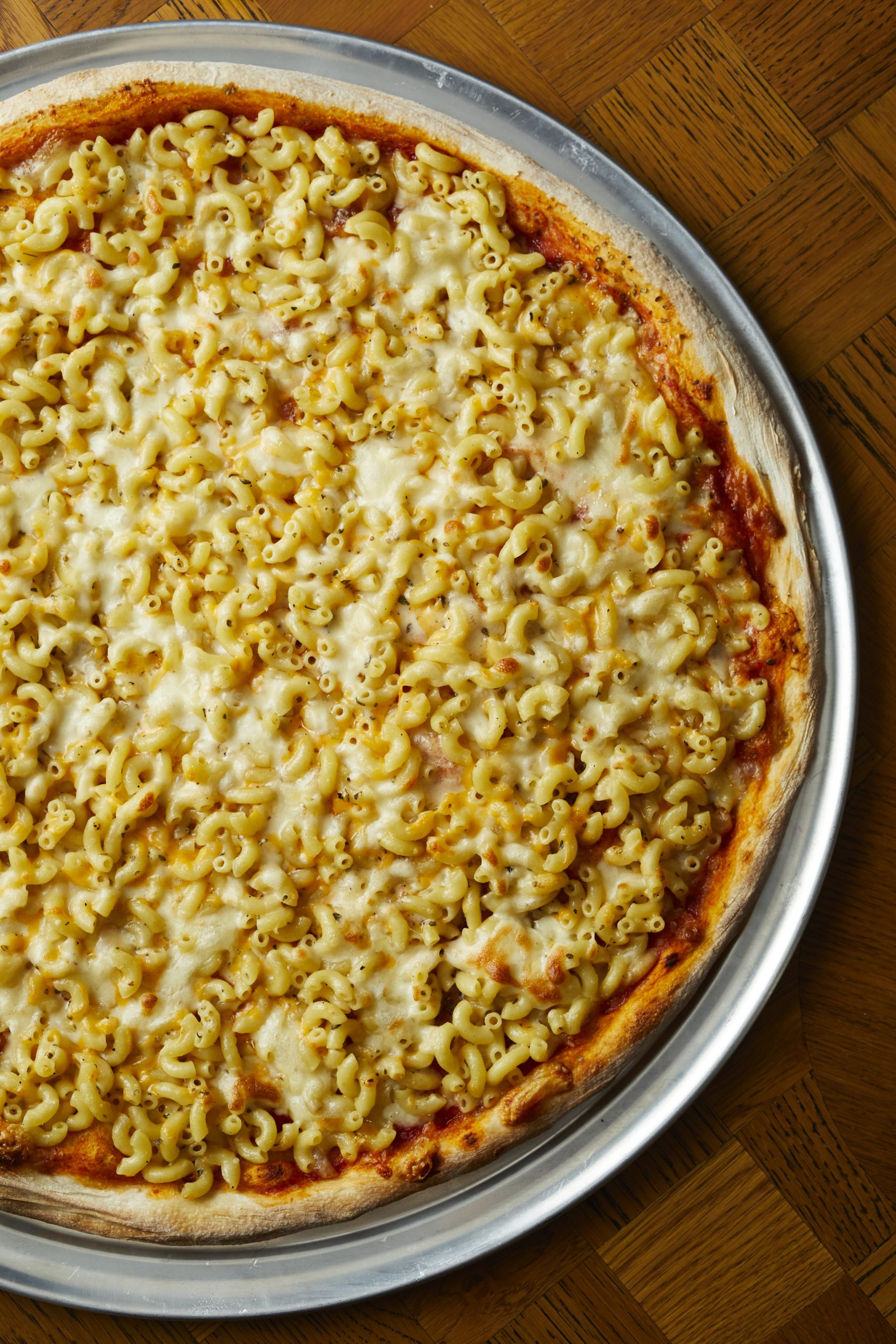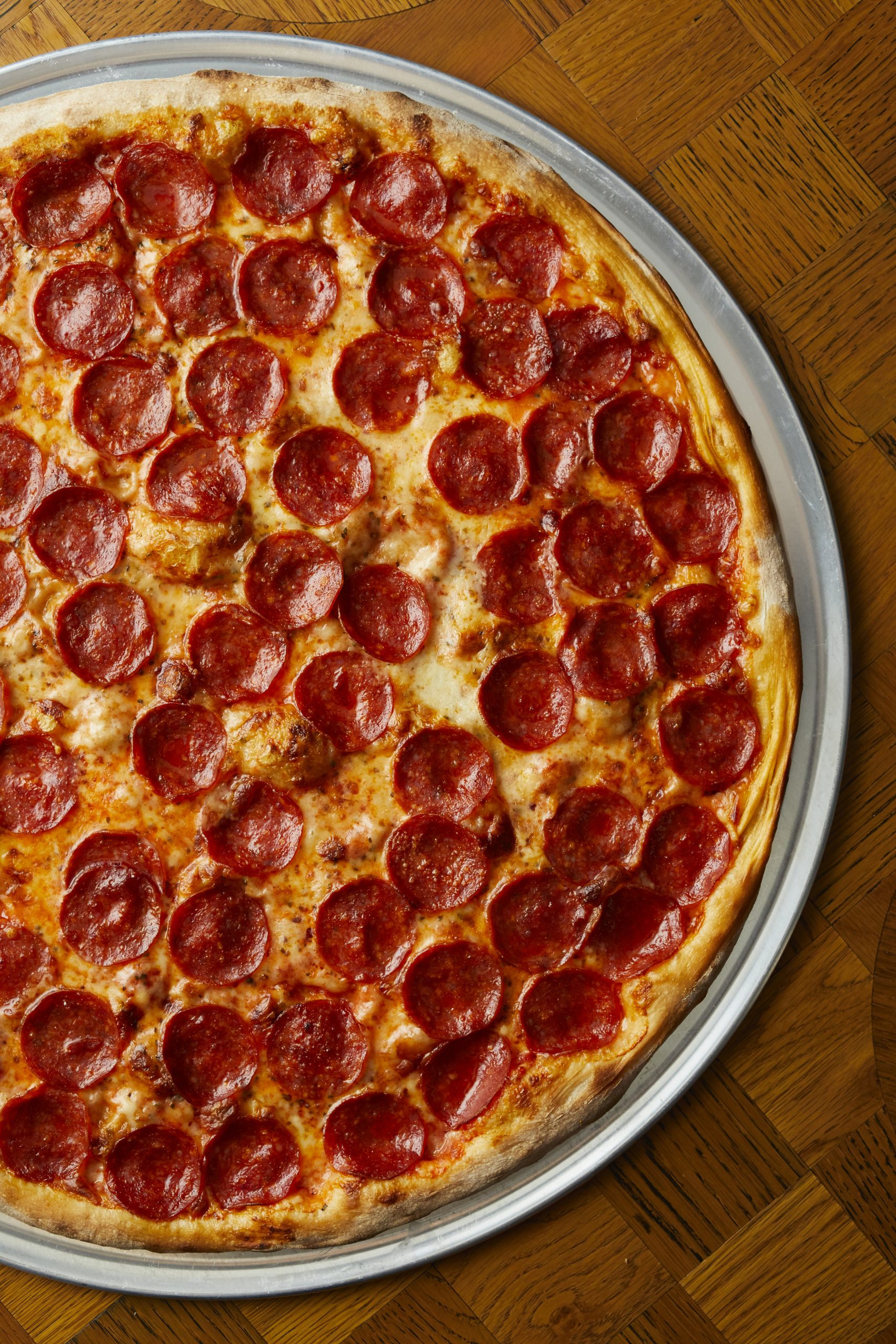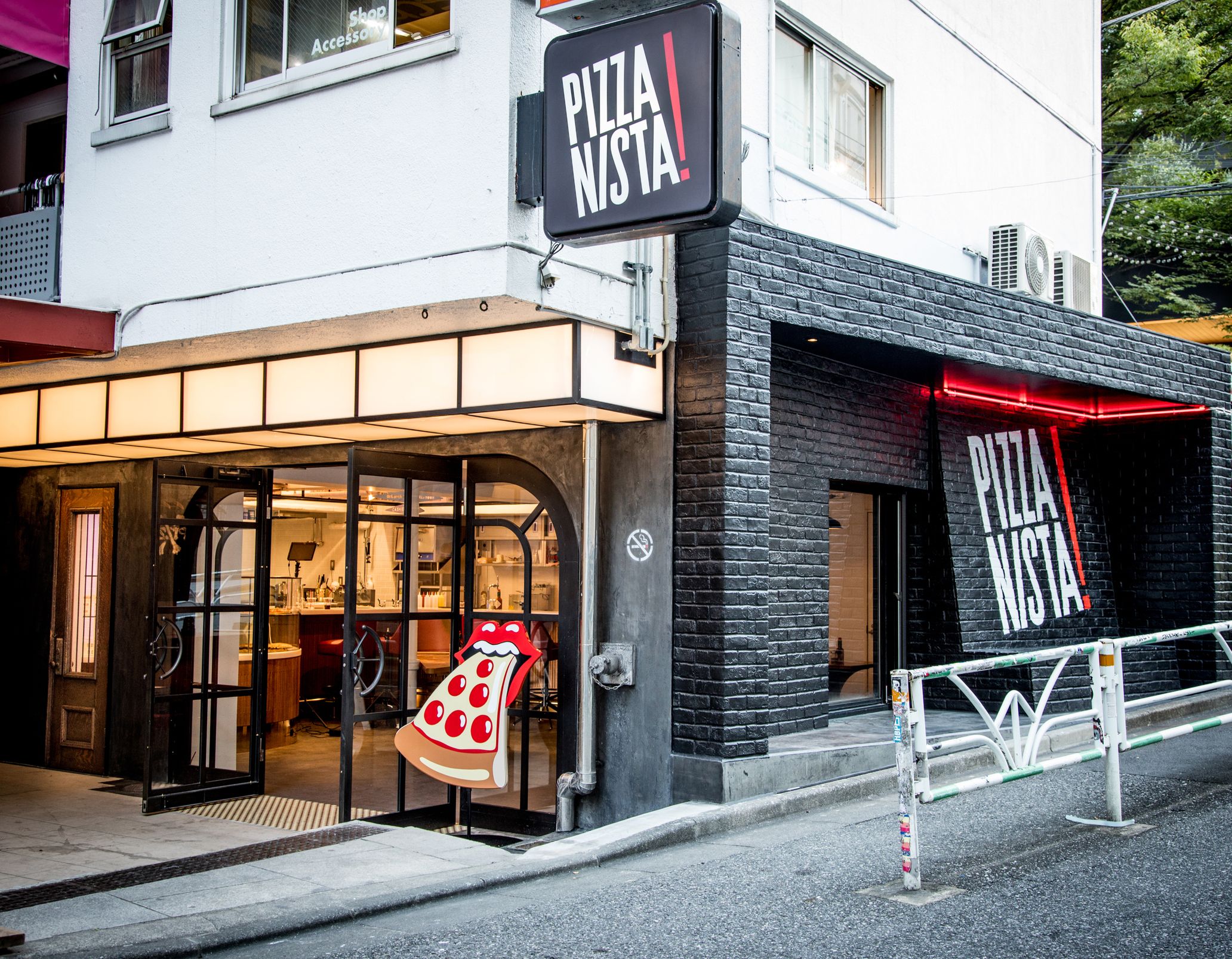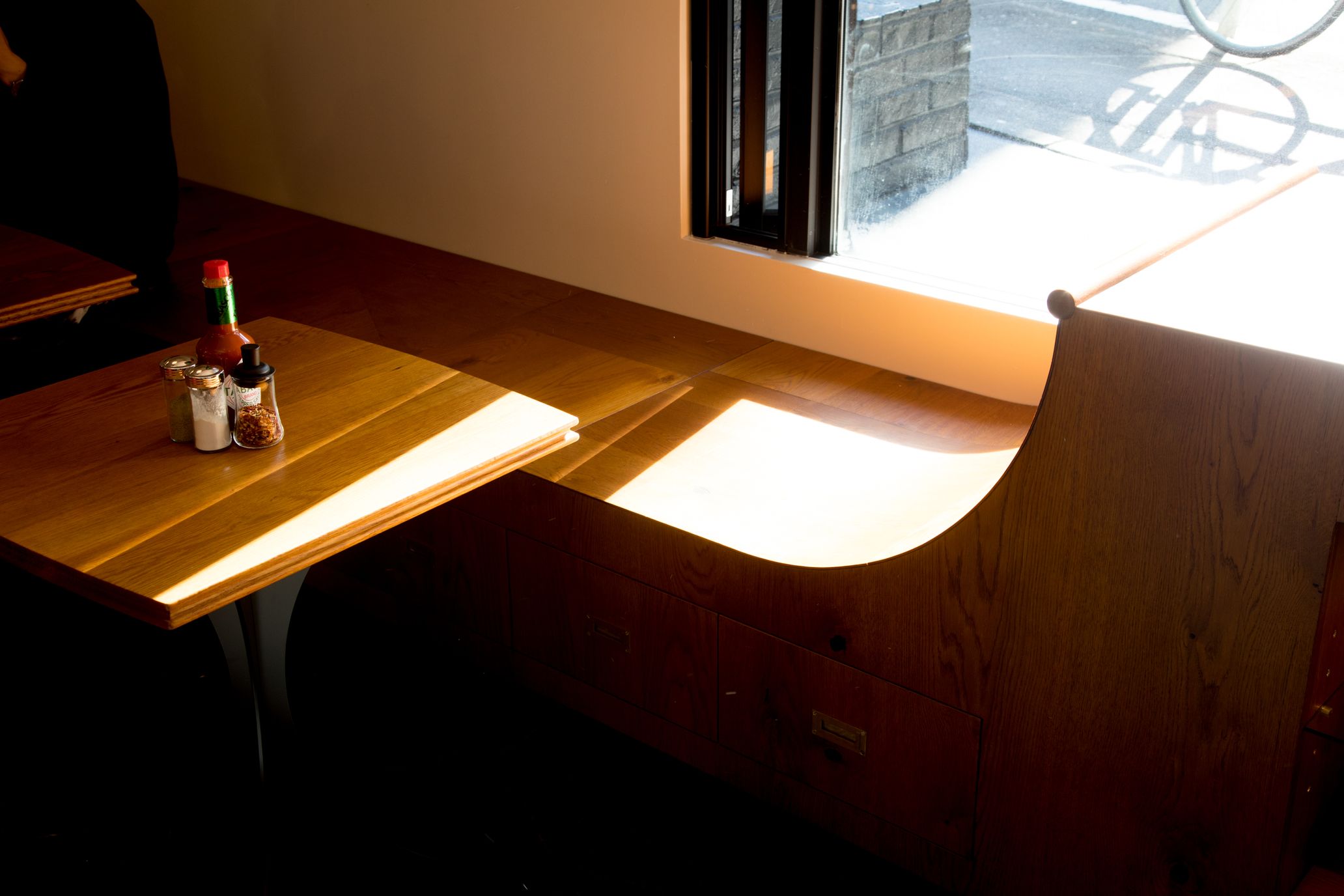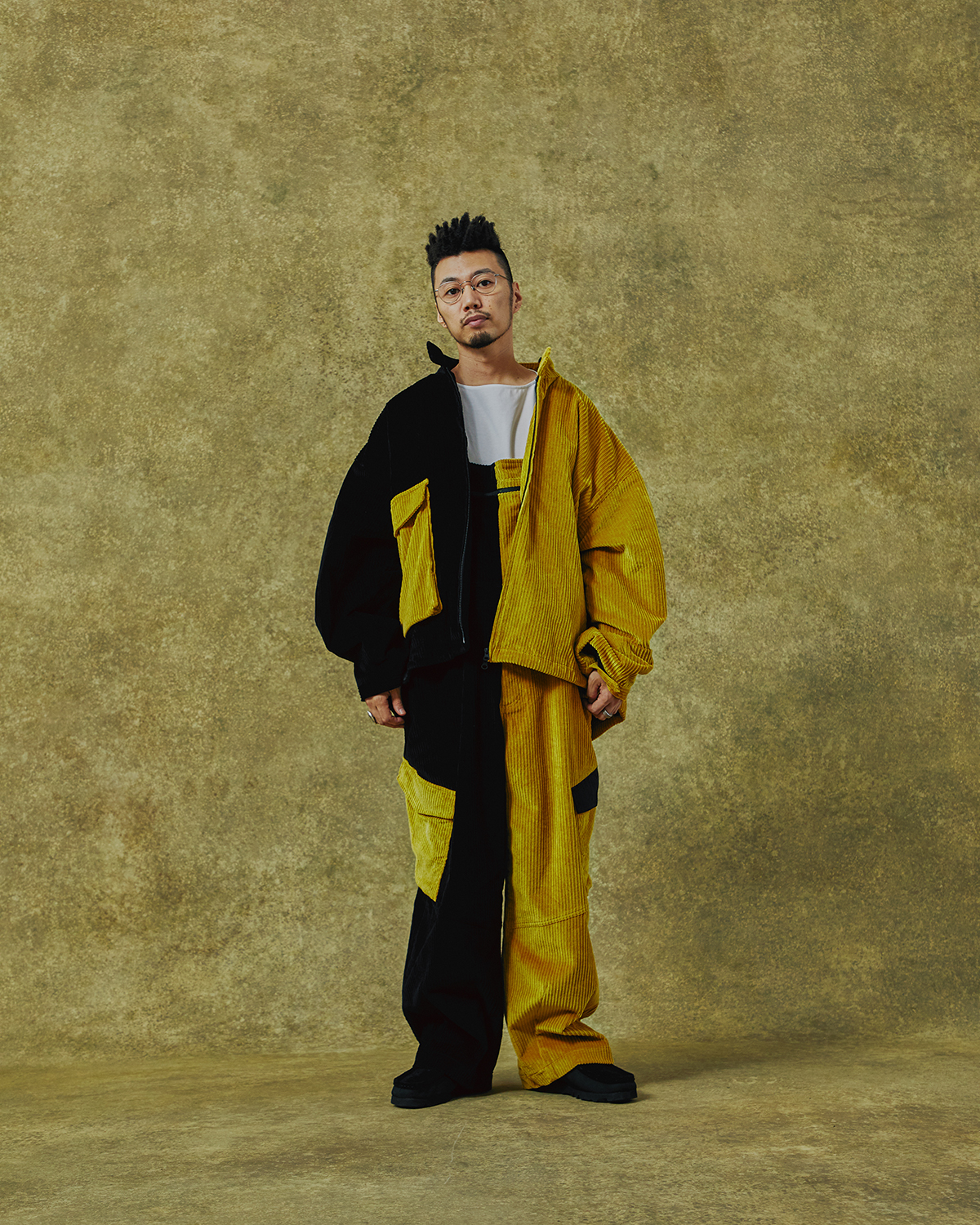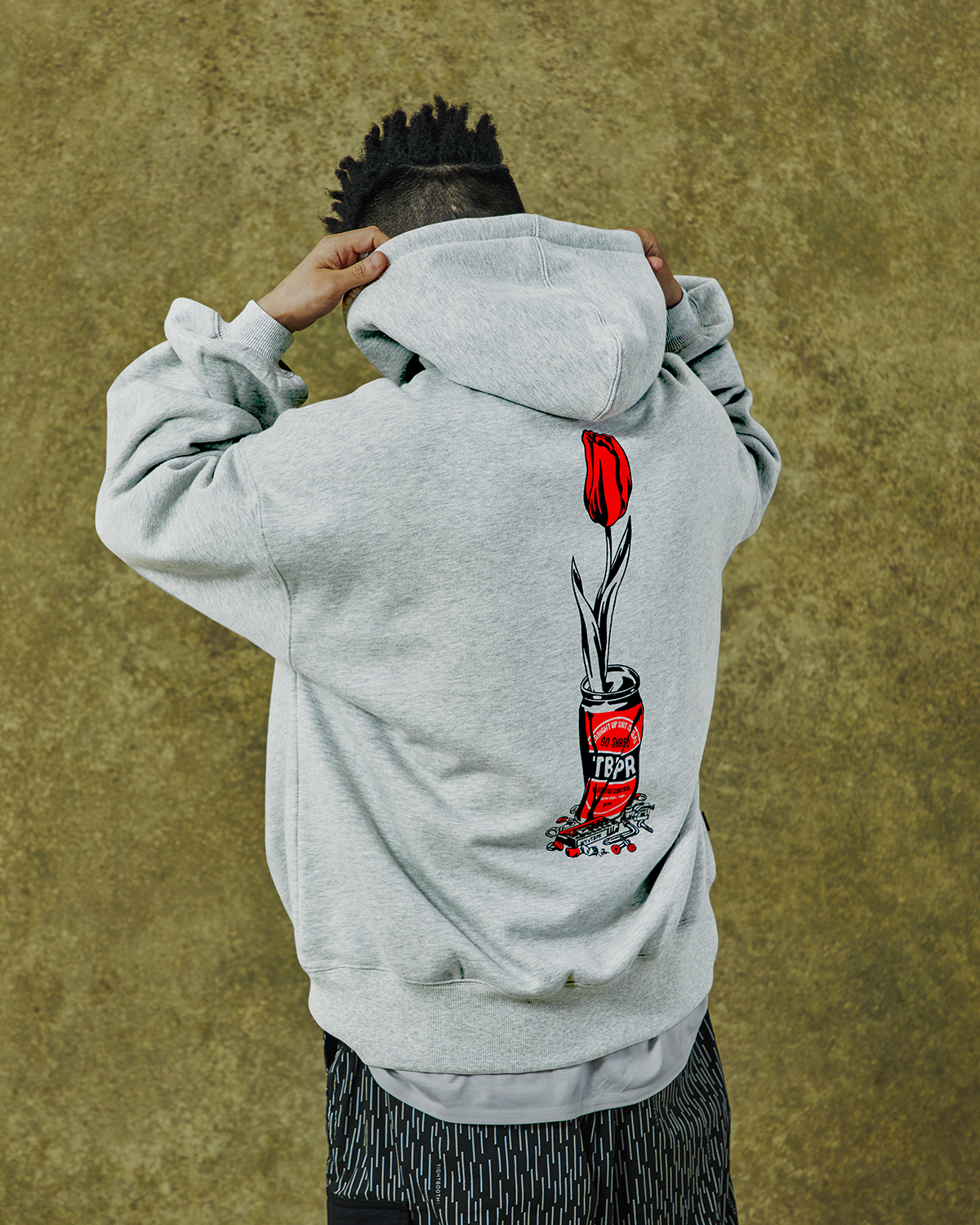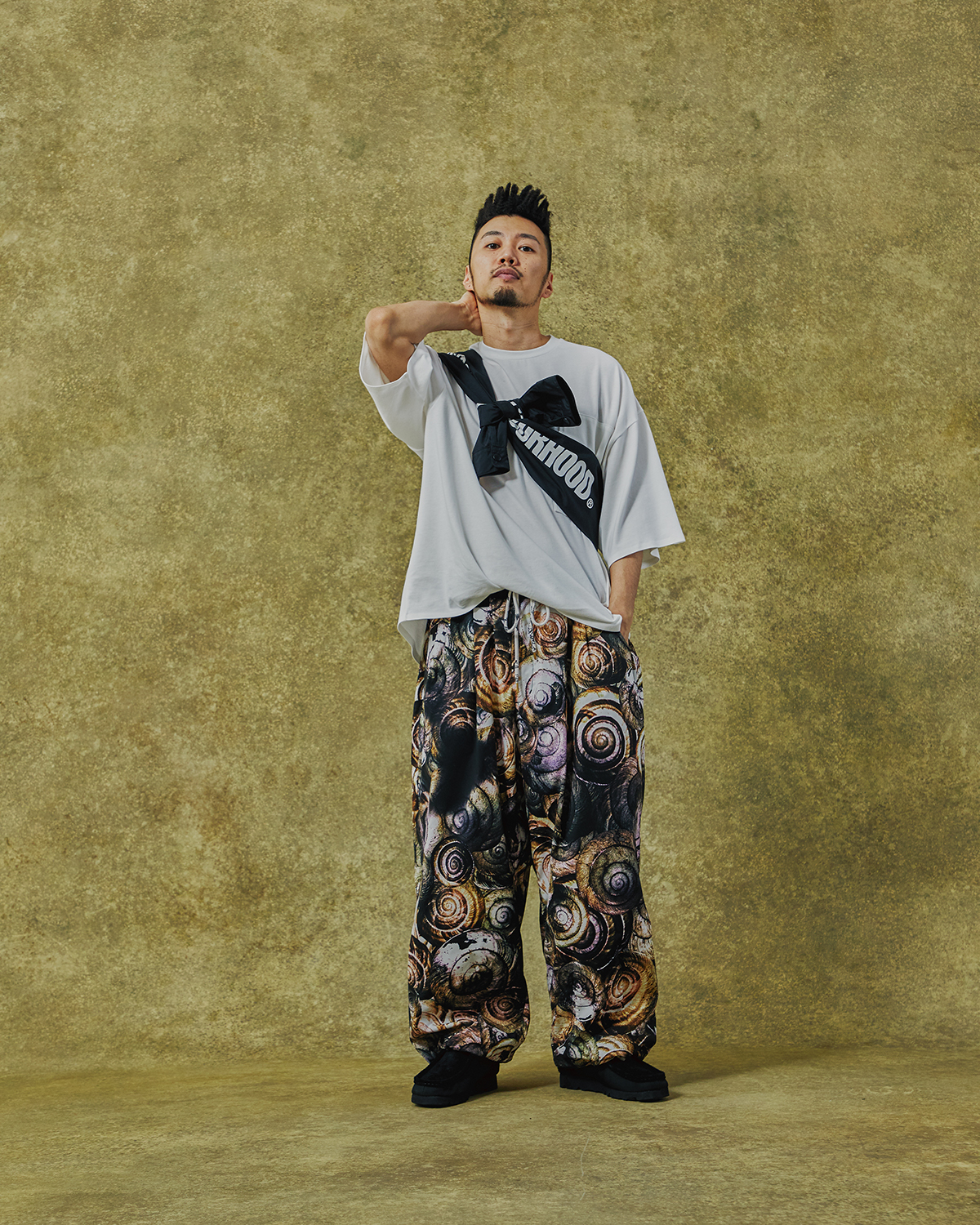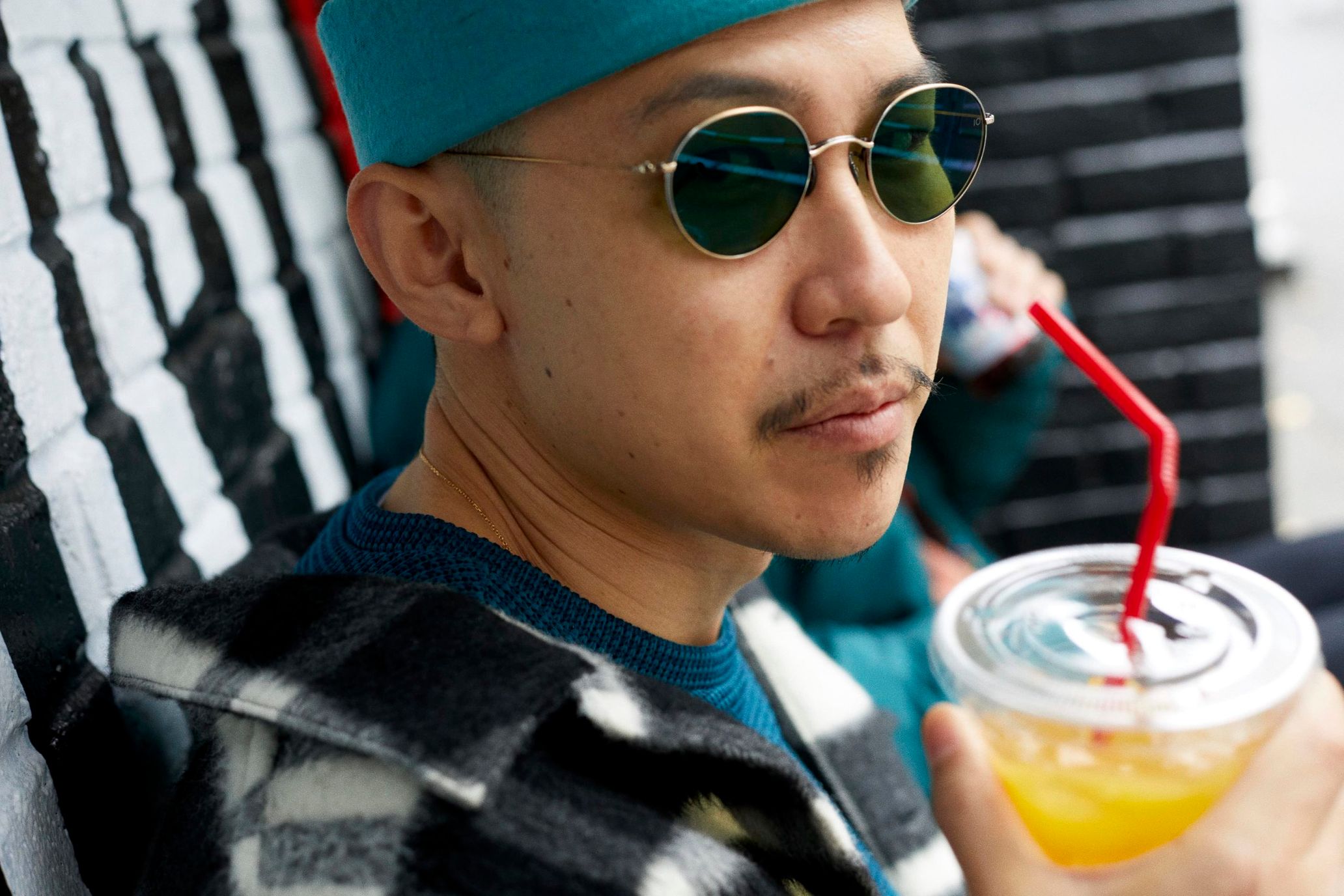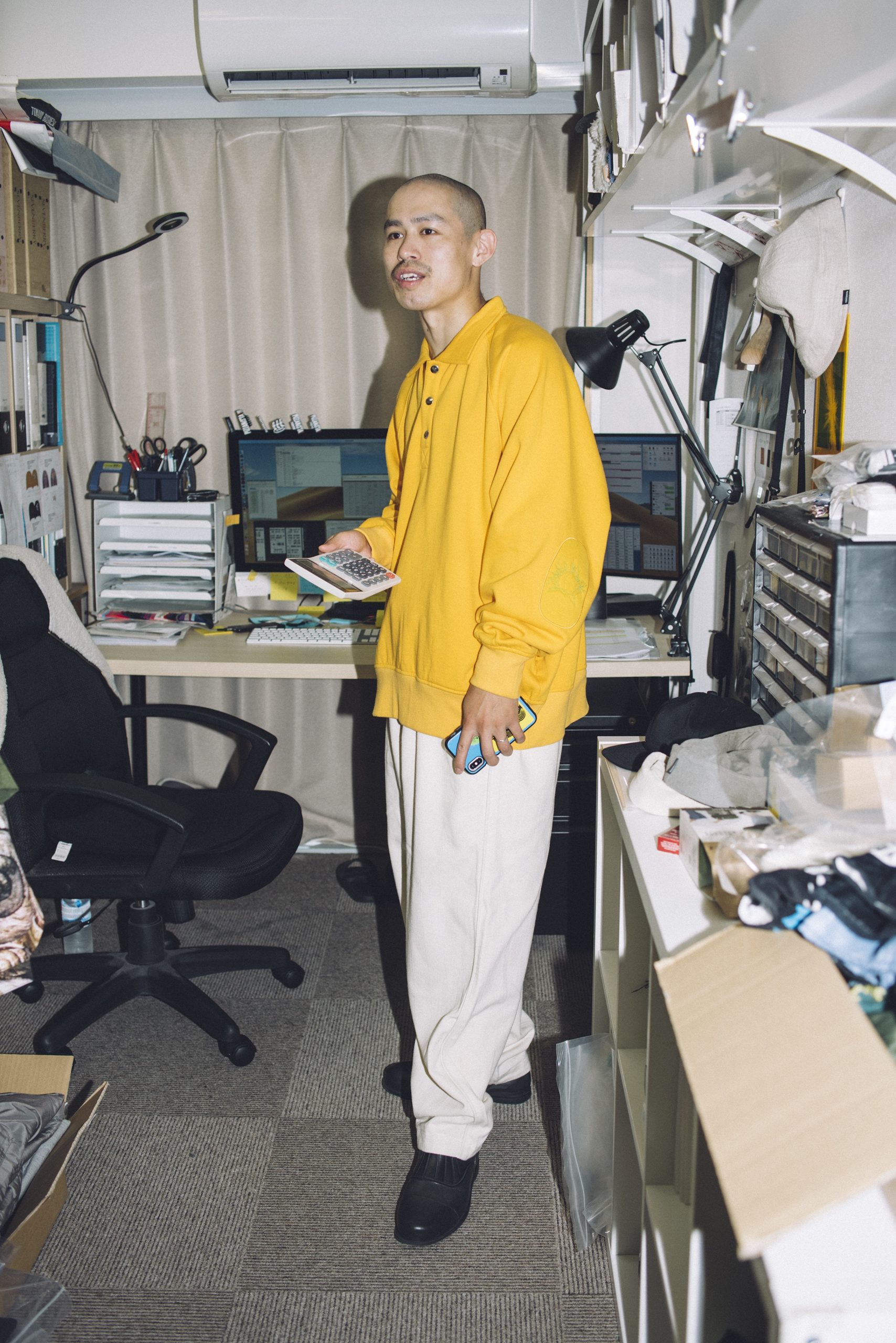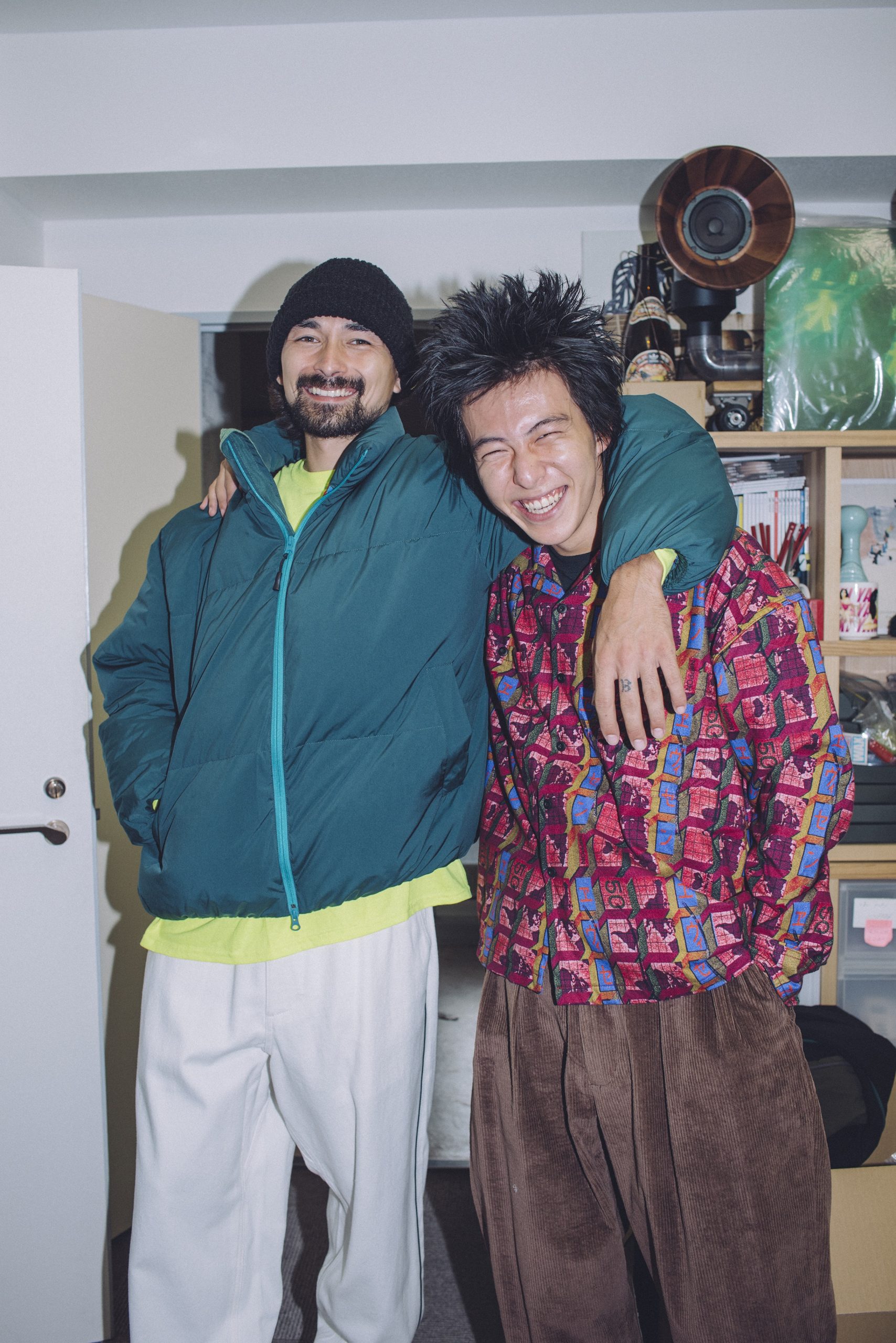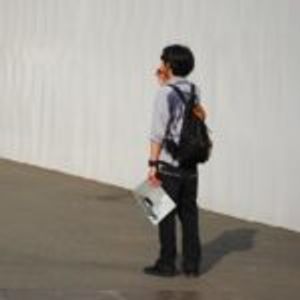PIZZANISTA! is a popular pizzeria from Los Angeles. It’s owned by Salman Agah, a skater whose illustrious career has included being named SOTY (Skater of the Year) by the skateboarding magazine Thrasher. In November, his pizzeria, which is loved by skateboarders and locals alike, landed in Japan for the first time. PIZZANISTA! TOKYO is led by Katsumi Minami and Shinpei Ueno, two skateboarders who have been at the forefront of the Japanese skateboarding scene. With each of them heading their own brands, Evisen Skateboards and Tightbooth, what led them to work on the branding of PIZZANISTA! TOKYO? When I asked the two about why they developed businesses from skateboarding and turned their pastime into a job, I learned lessons that can be applied even outside of the skateboarding world.
We’ve been skating up until now, so we’re always thinking about how we can take it further
——First, could you tell me the story behind PIZZANISTA! TOKYO?
Katsumi Minami (Hereinafter Katsumi): PIZZANISTA! is a popular pizza place in LA. Apparently, they’ve had many offers from Japanese companies to open up a restaurant, but Salman [Agah] felt that he wanted to work with skaters, so it’d never worked out. And then I met Salman through a friend who lives in LA, and he asked me about opening PIZZANISTA! I didn’t have any knowledge of the food industry, so I couldn’t just be like, “Sure, I’ll do it!” But Salman understood that, and told me he’d wait until I was ready. So it took about five years between when he first asked me to when I actually opened the store.
Shinpei Ueno (Hereinafter Shinpei): I love pizza, and when I go on tours overseas, I eat four to five slices of pizza a day. But there aren’t many shops in Japan that sell pizza by the slice. So I always had this vague vision of one day opening up a by-the-slice shop.
Katsumi: Yeah. Shinpei had always said he wanted to do that. If I was going to open PIZZANISTA! in Japan, I wanted to do it with Shinpei. And then two years ago, we met someone who had experience in the food industry who could support us, so we started working towards opening up a shop in Japan.
Shinpei: Yeah. To prepare to open a store in Japan, we went with some friends to PIZZANISTA! in LA. And I met Salman there for the first time, who said that with us opening the store, he knew for sure that everything would be okay. And I was really happy to hear that.
——What was your impression of Salman Agah?
Katsumi: That was my second time meeting him, but I still have a vivid memory of when he started PIZZANISTA! ten years ago. I heard that a skater was going to start a pizzeria and I thought that was so cool. At the time, there weren’t many skaters with side businesses, even in the US. So his impact on me when he first started the pizzeria was even bigger than the last time I met him.
Shinpei: We’re no longer young skaters, and we’ve been skating up until now, so we’re always thinking about how we can take it further. Of course, I’d never quit skating, but I wondered if I could create something using what I gained through skating. I think that’s why Kacchan [Katsumi] thought that Salman starting PIZZANISTA! was so cool, too. PIZZANISTA! came along right as we were thinking that we should do something new.
Katsumi: Although once we got serious and started preparing, the coronavirus pandemic became a serious global issue, and our opening was delayed by a year (laughs) .
——Weren’t you nervous about opening up a restaurant in the time of coronavirus?
Katsumi: Honestly, I was nervous, but Salman’s built up a brand and a flavor, so we’re confident and up to the challenge. Of course, I do feel more pressure about the fact that it’s our first time running a restaurant and on top of that, we have the important task of dealing with the coronavirus.
Shinpei: Right. I hadn’t paid attention to it in the skateboarding or fashion world, but that consideration is really important.
Katsumi: In that regard, I’m thankful for the support of our business partners and our friends in the food industry.
——So in addition to the original menu from LA, you also have an original Japanese menu, including a pizza “Tokyo” with teriyaki chicken.
Katsumi: I think it’s important to take the flavors as seriously as we take skateboarding. We had a chef from a famous restaurant help us develop the menu, so we were able to do a lot of tasting before the opening to make sure we were satisfied with the flavors.
Shinpei: In LA, the pepperoni and macaroni & cheese slices are popular, but personally, I like the cheese (3 kinds of cheese and house-made marinara) too.
——Every part of the interior is filled with the essence of skateboarding.
Shinpei: Our friend, Nista One, worked on the store’s design for us. The benches with ramps on them and “spitfire” swing doors were custom-made under his direction.
Katsumi: Also, the bathroom sinks are swimming pool bowls, and people like the pizza-shaped tables, too.
I want to make top-notch things, even if they’re just merch
——The original jackets (uniforms:the jacket is not actual restaurant uniform) that you released to commemorate the opening were so great that it was hard to believe they were made by a restaurant.
Shinpei: Thank you. I was the main director behind the original apparel. In the future, I’d like to release items that have a story or fit with the pizzeria. But I don’t want the apparel to become weirdly separate, like a clothing brand that stands on its own. I want to stay true to PIZZANISTA!’s roots as a pizzeria and avoid making too much apparel. But, if I decide to release something, I want to make top-notch things, even if they’re just merch.
Katsumi: I want to make clothes that make people say, even though it’s pizza shop merchandise, it’s stylish.
Shinpei: Exactly. Some stores just print their goods on blanks, but we want to be more thorough and particular than that. With the uniform jacket we sold when we opened, we embroidered on high-quality Japanese fabric, and the lining was made from red satin.
Katsumi: Using blanks is fine too, but I think when you put your arm through a sleeve of clothing that’s been carefully designed, it’s exciting, and you want to wear it more. The first people who put in orders for the jacket were the staff from the original PIZZANISTA! (laughs) .
Shinpei: I was happy when Salman reached out asking for an XL. With Tightbooth, I’m also particular about the silhouettes and fabric, but ultimately, I’m looking for something that looks good when I put it on. For example, the fabric can make a big difference in how skating styles look, so I make samples with both soft and stiff fabrics, and then create clothes based on which one is easier to skate in.
——In 2020, Tightbooth celebrated its 15th anniversary, generating buzz by launching collaborations with people and brands from many spheres, including skate related brands like Whimsy and Chaos Fishing Club, the clothing brand Neighborhood, and artists such as THA BLUE HERB and VERDY.
Shinpei: I reached out to people I’ve known for a while, and also people I just met to express the old and new of Tightbooth.
——Speaking of Tightbooth’s collaboration, the capsule collection announced last year with fragment design is still fresh in my mind.
Shinpei: Fujiwara-san liked “LENZ II,” which I made in 2013, and that’s how we started to talk. I was really happy to hear that he thinks what I do is really great.
We’re destined to keep releasing skate videos
Katsumi: Tightbooth and Evisen are skate brands, so we’re destined to keep releasing skate videos. If we can fulfill that destiny, I think we can keep our brands going for the rest of our lives.
Shinpei: They’re so-called “skate creations.” One reason that our brands get support is because of these skate creations. It’s like a corporate philosophy, and it’s the hardest and most fun work of my life.
Katsumi: The production process behind the shoots is so difficult that it’s hard to put into words. If I had to, it’s like continuously receiving punches to the body (laughs) .
Shinpei: I think I’ll somehow be able to release “LENZ III.” It’s been almost eight years since the last one, and that’s because during the shooting, all these new talents kept popping up. And then, when you shoot them, it takes another few years from there…If possible, I’d like to release it sometime next year, but if I were to create a skate video with my current schedule, I’d basically have to stop sleeping.
Katsumi: (laughs) . That’s how difficult and important it is for us to make skate videos. But we started PIZZANISTA! TOKYO, so we’ll have to find a way to make it all happen. Let’s do our best.
——You both opened up the pizza restaurant on top of having your own brands. It seems like back then and still today, everything leads back to skateboarding, and skate videos are a big part of that.
Shinpei: It was my dream to make a living from skating, but I didn’t have a concrete strategy. I was motivated by the idea that I was having fun at that moment, and it was awesome to give skating my all while making clothes and videos with my friends.
Katsumi: Right. I just had the confidence that I could make a living through skating. Shinpei and I have that in common.
Shinpei: We got to where we are by stacking up results, little by little. With each video we released, we got more people on board with our vision, and then people started buying our clothes, too. It sounds simple and easy when it’s put into words, but it took us 20 years of personally going all over the country to gain people’s trust. That’s why I want to keep moving forward, one step at a time.
——So it’s important to finish what’s in front of you, one thing at a time.
Shinpei: Right. It’s not like I skate to get rich, so the fact that I do it for fun hasn’t changed. If you’re not happy with what you’re doing right now, you can’t keep up with it. With skateboarding, the faster people want to get better, the slower their progress will be, so a lot of people quit before they get good because of that pressure. We’re at this level now, but we couldn’t have kept going if we weren’t motivated by the simple joy of how fun it is to skate.
Katsumi: We just have to work hard at what’s in front of us. We hope we can do that while sharing that feeling with my friends.
Shinpei: To use the example of a skate video, making something good requires a lot of effort. A lot of the time, you shoot all day and still get nothing. And to be honest, it’s exhausting to take a generator and six floodlights to go shoot at some faraway location. But it’s cool to give something your all, even if it’s tedious. There are plenty of people who can’t do that, no matter how much they like skating. But Katsumi is a person who really gives things his all, and that’s why I work with him today. We’re able to have our own brands and a pizza shop together because we can put in more passion than others, even when something is tedious.
We’re proud to work with our friends
——Everything is definitely the result of your hard work. You could say that about anything you guys do, not just skateboarding. You both make skate videos for your brands, but with PIZZANISTA!, have you changed your “skate creation” approach?
Katsumi: I think it’s more like adding to it rather than forcibly changing it. If we suddenly changed our direction, it wouldn’t resonate with anyone.
Shinpei: I feel like we’re showing how great the PIZZANISTA! brand is with our own flair. If we do that, we should be able to connect with the people who buy from our brands. It’s like a “slide of trust.”
Katsumi: “Slide of trust” sounds like the name of a trick, I like that (laughs) . New stores are always opening up in Shibuya and Harajuku, but there are some long-established shops. The fact that there are long-established stores means there’s a deeply rooted local vibe. So we want this shop to be local, and to become a good shop that a lot of people come to.
Ueno: And I also want people to know that PIZZANISTA! isn’t just a shop for skaters. Actually, girls and people who work in the neighborhood come through. And that’s really the kind of shop we’d like to be. But as long as we’re running the show, you should be able to feel branding that reflects skaters somewhere. I want to keep that in mind.
——I think that there are a lot of skaters who would like to make skating their livelihood and try all kinds of different things like you two have. What do you want to show the next generation?
Shinpei: We can only lead by example. There might be people who won’t understand, but you can’t move forward if you’re afraid of that. I’d like the younger generation to see that we’re running skate brands and a pizzeria with our friends, and our lives are great.
Katsumi: Exactly. We’re proud to work with our friends.
Shinpei: If we show them that, I think everyone will want to try it. It’s not that we want to be admired, but it’s more that we’re having so much fun that we want other people to do what they want, too. We also watched and learned from other people doing that. I want people to see it with their own two eyes, think about it, and make moves.
Shinpei Ueno
Shinpei was born in 1983 in Osaka. He runs TIGHTBOOTH PRODUCTION and is a professional rider for Evisen Skateboards. He’s released many skateboarding videos, and his most well-known work, “LENZ II,” was highly-acclaimed both in Japan and abroad. He works in a wide variety of fields, including direction for a skate shop and apparel brand, and production for QUCON, Moncler Genius, Gucci, and PIZZANISTA! TOKYO.
https://shop.tightbooth.com/
Instagram:@shinpei_ueno
Katsumi Minami
Katsumi was born in Tokyo in 1980. After gaining experience at skateboard shops and brands, he founded Evisen Skateboards in 2011. He’s established a unique style by incorporating traditional Japanese motifs and graphics into products such as decks and apparel. He also works as a skate video cameraman, creating Evisen Skateboards’ first full-length video, “EVISEN VIDEO,” in 2017.
https://shop.evisenskateboards.com/
Instagram:@katsumi_minami2
Photography Teppei Hoshida
Text Shogo Komatsu
Translation Aya Apton


